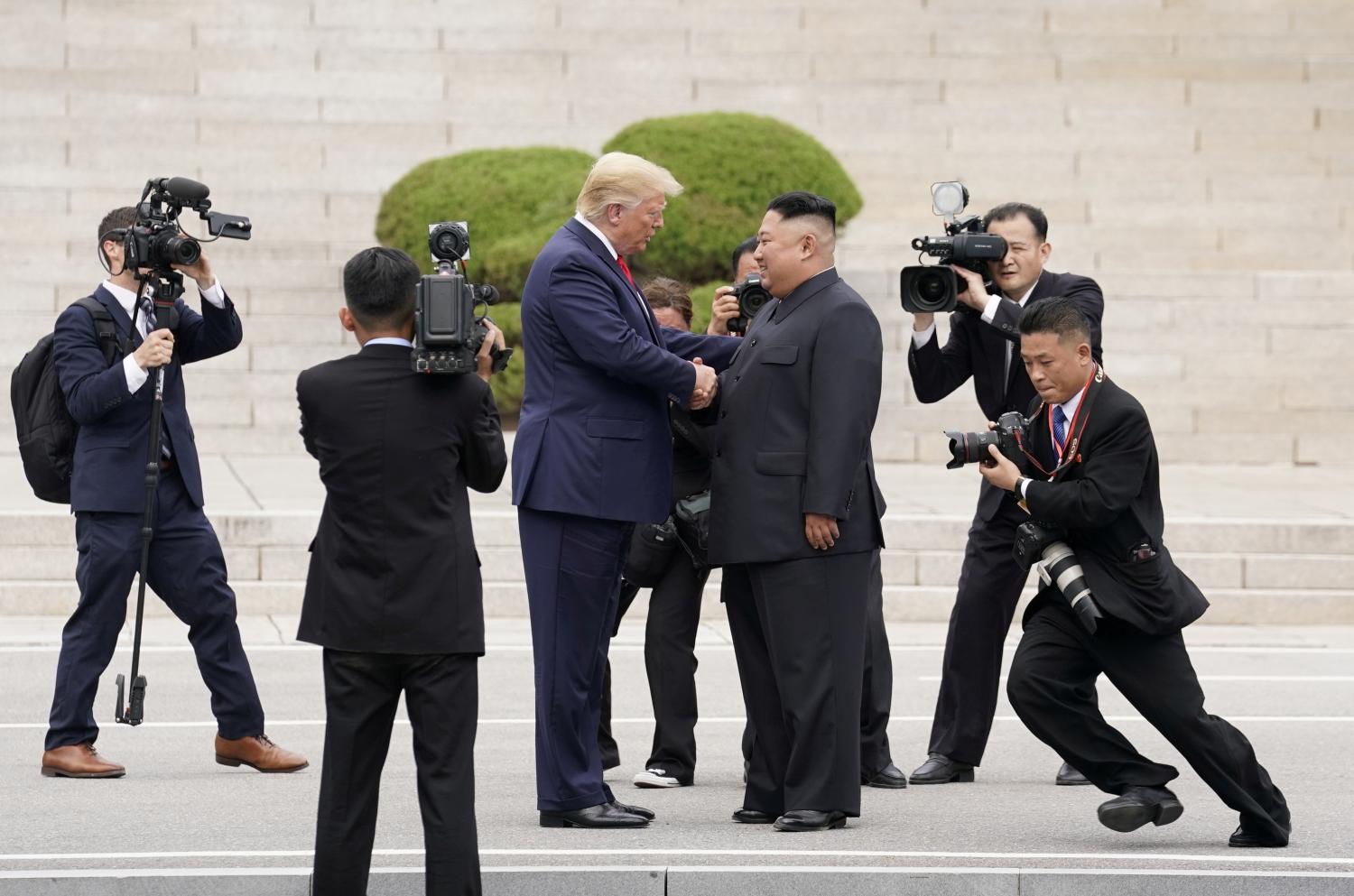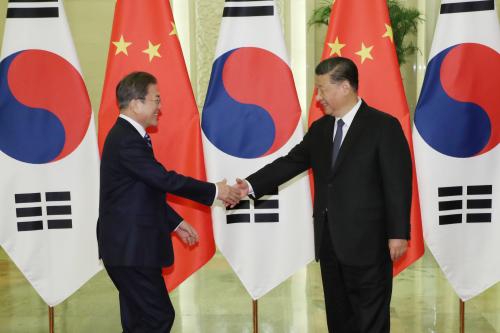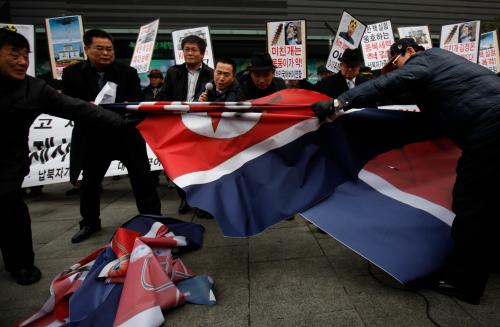This piece was originally published by the East Asia Institute (EAI) as part of a project with the Center for East Asia Policy Studies (CEAP) at Brookings examining prospects for U.S.-South Korea cooperation in an era of U.S.-China strategic competition. A webinar was hosted by CEAP and EAI on November 13, 2020 to discuss the issues presented in this and other project working papers.
Executive Summary
Joe Biden’s election as America’s 46th president and the defeat of Donald Trump necessitate a careful appraisal of U.S.-Korea policy, and of U.S. strategy and policy in Northeast Asia as a whole. These require an evaluation of the legacy of the Trump Administration; and consideration of three issues that will shape U.S. policy in the Biden Administration: (1) reaffirming and rebuilding America’s alliance relationships; (2) China’s political, economic, and strategic directions and how U.S. policy could influence Beijing’s policy choices; and (3) North Korea’s political, economic, and strategic orientation, and how the actions of the U.S. and other powers could influence the DPRK’s calculations and future behavior. None of these issues are for the United States alone to decide. At the same time, no incoming administration starts with a blank slate. A single short essay cannot address these issues in detail, but it can identify the issues that will most likely shape U.S. policy choices.
Joe Biden’s election occurred amidst the most disruptive and divisive period in U.S. domestic politics in many decades. The new administration must confront the worst public health crisis in the United States in a century. This has already involved the death of more than 250,000 Americans and the infection of many millions more, with the crisis hideously mismanaged by the outgoing administration; resultant levels of unemployment and business closures that will greatly impede America’s full economic recovery; and acute polarization (much of it over racial inequities and glaring economic inequality) that have undermined the country’s democratic norms.
Though the results of the election are beyond dispute, Donald Trump and his inner circle are attempting to reverse the electoral outcome and to disrupt the peaceful, orderly transfer of political power in the United States. Trump’s desperate attempt to impede the U.S. governmental process and complicate president-elect Biden’s efforts to renormalize American politics are disgraceful, and corrosive of long-held political norms. They must be condemned and opposed as illegitimate actions designed to subvert the democratic process.
Developments since election day underscore the magnitude of the challenges that president-elect Biden will face when he assumes office in January. Even as he seeks to reclaim and rebuild America’s claims to international leadership, his first order priorities must be to combat the pandemic (to be bolstered by the near-term availability of several very promising vaccines); to undertake the revival of the American economy; and to reestablish normalcy in American civic life. These do not make the Biden administration’s external priorities unimportant, but the U.S. will be unable to lead abroad if it cannot lead at home.
The Brookings Institution is committed to quality, independence, and impact.
We are supported by a diverse array of funders. In line with our values and policies, each Brookings publication represents the sole views of its author(s).







